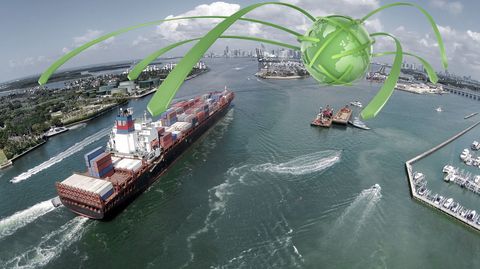The future of the Merchandise Exports from India Scheme (MEIS)
How can exporters in India claim on the MEIS scheme and what new options are there to gain relief on export duties?
The Merchandise Exports from India Scheme, or MEIS, is one of a number of incentive programs put in place by the Indian Directorate General of Foreign Trade (DGFT) to boost exports from the country and counteract expenses related to infrastructural inefficiencies and other costs that may discourage exports.
Although the scheme has now been discontinued, exporters are still able to make applications under the program for any goods shipped out of India before its final deadline of 31st December 2020. It has also been replaced with new incentive programs that aim to offer tax breaks for businesses exporting goods from the country.
What does the Merchandise Exports from India Scheme or MEIS program involve?
The Merchandise Exports from India Scheme or MEIS program allows exporters to claim duty credit scrips for the goods they export. These can be used for payment of excise duty, service tax, and customs duty and are freely transferable, so can be sold on to other entities.
The value of the incentives is given as a fixed percentage of the FOB value of goods, which varies according to the category of exports. The highest rewards are given for those including:
- Packages and value-added products
- Agricultural and village industry products
- Labor-intensive products
- Eco-friendly and green products
- Goods with a large number of producers and exporters
- Industrial products from certain sectors
- Hi-tech products
For most goods, the percentage values offered as incentives range from two percent to five percent and vary from product to product, as well as based on the destination country for exports.
How can firms make a Merchandise Exports from India Scheme resp. MEIS application?
The deadline for making claims under MEIS (Merchandise Exports from India Scheme) has been extended several times. Currently, the last date at which such applications will be accepted is 31st August 2022. The DGFT has stated no further extensions will be given.
Claims must be made electronically via the DGFT website in a specified format and with a digital signature. Applications must include the relevant e-BRC and electronic data interchange (EDI) shipping bill.
If exports are being made through an EDI port, much of the documentation can be supplied online, although firms will need to submit proof of landing. For non-EDI ports, documents including proof of landing, a physical copy of export promotion, a copy of non-EDI shipping bills, and scanned copies of other prescribed documents will all be necessary.
What is replacing the MEIS program?
Goods exported after 31st December 2020 are not eligible for duties relief under the MEIS scheme. However, they may be able to obtain reimbursements for duties and taxes under the new Remission of Duties and Taxes on Export Products (RoDTEP) scheme.
This has superseded MEIS after the previous scheme was found to be non-compliant with World Trade Organization (WTO) rules. Therefore, RoDTEP was developed to address these issues and ensure that exporters from India can still claim incentives, while being compliant with WTO standards.
Unlike MEIS, which offered additional incentives on the export of certain goods, RoDTEP works by providing refunds on a number of taxes and levies that are not currently covered by other schemes. These include:
- Central and state taxes on fuel (including petrol, diesel, CNG or PNG) used in the transportation of export products
- State duties on electricity used for manufacturing
- Mandi tax levied by APMCs
- Toll tax and stamp duty on import-export documentation
Exporters can also benefit from lower rates of interest on capital loans, higher insurance cover, and financial incentives on exports. While the scheme covers a wide range of goods, there are some exemptions, so it will be essential that businesses are fully aware of these restrictions when making applications for reimbursements.

